Refinery Blaze Breaks Out In Iran's Persian Gulf Port

Three petroleum product reservoirs belonging to the Aftab Oil Refining company have caught fire in Iran's southern port city of Bandar Abbas, state media reported on Monday.

Three petroleum product reservoirs belonging to the Aftab Oil Refining company have caught fire in Iran's southern port city of Bandar Abbas, state media reported on Monday.
"According to statements by local sources, efforts have been started to extinguish the fire, but there is a possibility of fire spreading and nearby reservoirs exploding," the official IRNA news agency said.
Bandar Abbas is located on the Persian Gulf coast and is one of the hubs for export of oil and oil products.
The official government news agency IRNA reported that six firefighters have been injured in trying to extinguish the blaze. Footage of a large black smoke coming out of an industrial compound was shared by IRNA.
The cause of the incident is still unknown, but similar industrial accidents in the past have usually led to speculations of domestic or foreign sabotage.
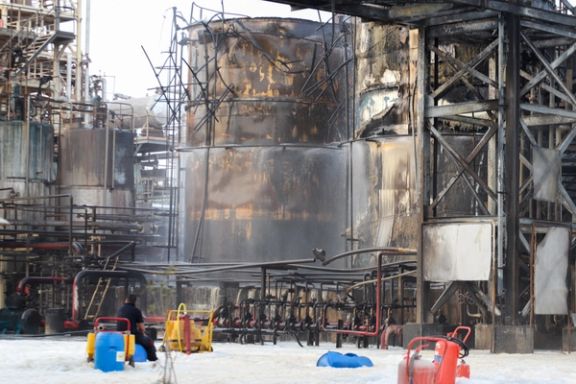
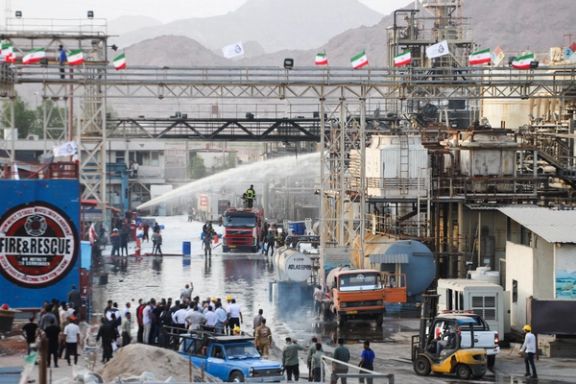
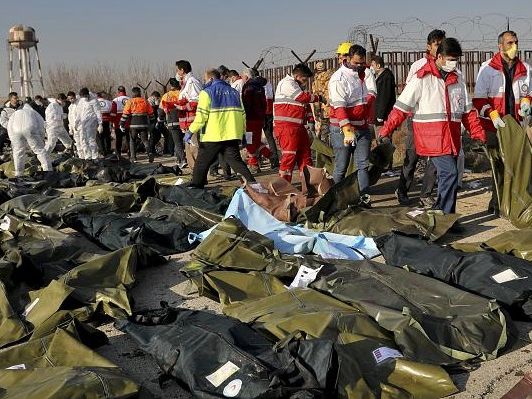
Iran’s has dismissed a lawsuit filed with the International Court of Justice by four countries over a Ukraine airliner downed in 2020 as politically motivated.
As the case drags past its third year, Western powers are growing tired of Iran’s lack of action and are now escalating to the global legal body, the principal judicial organ of the United Nations, filing action on July 5.
The case, listed as “concerning a dispute under the Convention for the Suppression of Unlawful Acts against the Safety of Civil Aviation (the “Montreal Convention”), is a desperate bid to help gain justice for the families of the flight PS752 of January 8 2020, on which all 176 people on board died when it was downed by Iranian missiles.
The plane, which was en route to Kiev and transporting mostly Iranians, crashed minutes after takeoff near the Iranian capital, shot down by Iran’s air defenses amid tensions between Tehran and Washington following the US assassination of IRGC’s Qassem Soleimani in Iraq days earlier.
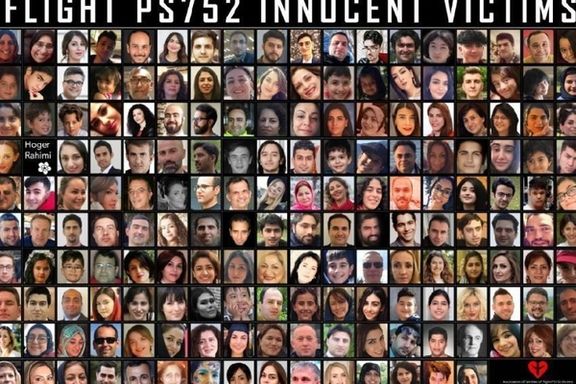
The regime has since been claiming to be open to talks for years since the tragedy but nothing has moved forward since other than some low level prosecutions, several of which have even since been appealed.
In a press release last week, the ICJ stated that the the United Kingdom, Canada, Ukraine and Sweden “claim that Iran has violated a series of obligations under the Montreal Convention as a result of the shooting down on 8 January 2020 of a civil aircraft in service, Ukraine International Airlines Flight PS752, by military personnel of Iran’s Islamic Revolutionary Guard Corps”.
In the application, the joint statement accuses Iran of having “failed to take all practicable measures to prevent the unlawful and intentional commission of an offence described in Article1 of the Montreal Convention, including the destruction of Flight PS752. It also subsequently failed to conduct an impartial, transparent, and fair criminal investigation and prosecution consistent with international law”.
In a typically dogmatic response, Iran’s foreign ministry said Monday that the escalation of the case to the ICJ is only serving “political objectives”, and maintains that the country formed an independent technical group right after the incident and took necessary actions “with goodwill, transparency, and utmost seriousness” to investigate.
“Following the tragic incident involving the Ukrainian plane, the Islamic Republic of Iran has officially, in accordance with domestic laws, international commitments, and with goodwill, transparency, and utmost seriousness, taken necessary actions to shed light on various aspects of the incident,” the statement said.
However, Canda and Ukraine have repeatedly complained that Iran has stonewalled and not cooperated in allowing an independent investigation.
The recent join application reflects the growing fatigue not only for the scores of families left devastated, but for the global powers fighting for justice.
Last year, Marilyne Guèvremont, a spokesperson from Global Affairs Canada, said the issue had become futile, with inaction from Iran making any attempt at discussions in vain. She told Iran International: “We are now focused on the subsequent actions to resolve this matter in accordance with international law. We will not rest until the families get the justice, transparency and accountability from Iran that they deserve.”
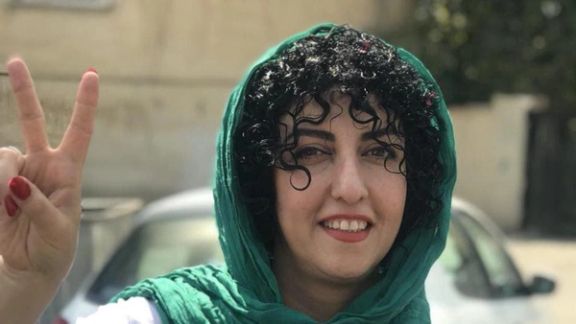
Iranian rights activist Narges Mohammadi has once again been summoned by the Evin Security Court.
It is the fifth time in the past six months that Mohammadi, a renowned author and campaigner, has been summoned but refuses to attend.
On June 18, Mohammadi received a notification from the Second Branch of the Evin District Security Court, to appear in court for her activities since her imprisonment in Evin Prison, where she continues to defy authorities by revealing the brutal conditions inside the country's notorious jail.
Mohammadi, whose punishment has included long stints of solitary confinement, has been summoned for a total of 11 times to Branches 1, 2, and 3 of the Evin District Security Court, as well as to Branch 29 of the Revolutionary Court. However, she has not attended any of the hearings.
Mohammadi has defiantly argued that the regime cannot silence her through fabricated cases, trials, and consecutive verdicts. She has also declared that she will not appear in any court and does not recognize the Islamic Republic, the judiciary, or court rulings.
She was arrested on November 16, 2021, and one year after being released, was detained again. Currently, she is serving a total sentence of 9 years and 8 months, along with 154 lashes and additional penalties in Evin Prison. She has also been denied access to medical care amid deteriorating health.
Mohammadi has been imprisoned several times over the past two decades for her work fighting for human rights.
In her letter to the UN Human Rights Council in Geneva in March, she said she is ready to testify against the authorities of the Islamic Republic regarding the torture, harassment and abuse of prisoners.
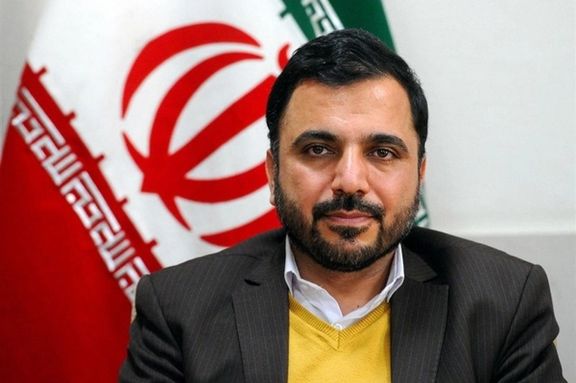
Iran’s communications minister says he welcomes the satellite internet service providers, especially Starlink, but they have to comply with the country’s territorial rules.
In an interview with semi-official Mehr news agency on Monday, Issa Zarepour claimed the objective is to open up connections to remote areas.
“Although over 4,000 villages have been connected to high-speed internet since the start of the Raisi administration, we still have about 3,500 villages that are not connected to high-speed internet, so satellite internet service providers can operate in these regions,” he said.
However, he admitted there will be strict compliance rules for any company the regime agrees to work with, meaning technical cooperation for censorship of Internet content.
Iran has made the same demand from Western social media platforms for not blocking their access.
Starlink, part of the US-owned SpaceX, is already providing internet to almost 60 countries, but for its connection to work everywhere in a large country, ground stations are needed.
The regime has for years been severely restricting internet access as well as access to popular social media platforms, such as Instagram, in particular that play a key role in supporting anti-regime sentiment and protester communications.
It has meant devastation for the millions who rely on social media to promote their businesses and hugely damaged e-commerce.
Recently, an Iranian official stated around 800 Starlink satellite internet receivers have been imported to Iran, but did not specify how, given the current sanctions imposed on the country.
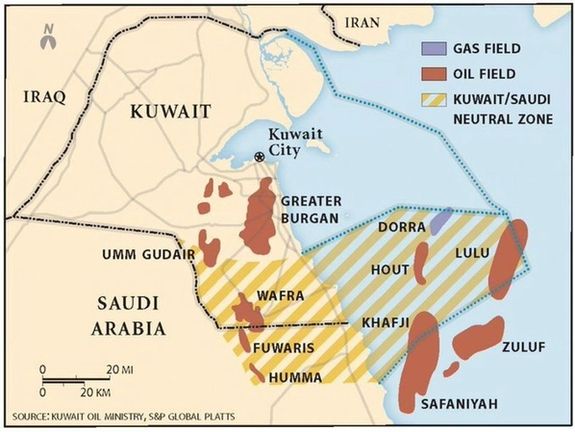
Kuwait and Saudi Arabia have "exclusive rights" in a gas field in the Persian Gulf disputed with Iran, Kuwait Oil Minister Saad Al Barrak reiterated on Sunday.
He also repeated earlier calls on Iran to validate its claim to the field by demarcating its own maritime borders first.
Iran has previously said it has a stake in the field and called a Saudi-Kuwaiti agreement signed last year to develop it "illegal".
"Until this moment, this is an exclusive right of Kuwait and Saudi Arabia in the Durra field, and whoever has a claim must start demarcating the borders. And if it has a right, it will take it according to the rules of international law," Al Barrak said in an interview with Saudi state-run Al Ekhbariya television.
"The other side has claims that are not based on a clear demarcation of the maritime borders," he added, referring to Iran.
Iran claims any development without its consent breaks international laws, and insists that 40 percent of the field is located in its territorial waters.
Al Barrak's comments echo those of Saudi Arabia, which said last week that the kingdom and Kuwait exclusively own natural wealth in the Gulf's maritime "Divided Area".
Saudi Arabia also renewed its call to Iran to start negotiations with Riyadh and Kuwait on the demarcation of the eastern border of the area, Saudi state news agency SPA said.
Called Arash in Iran and Durra or Dorra by Saudi Arabia and Kuwait -- the offshore field was discovered in 1967 and is estimated to have a total proven reserves of around 310 million barrels of oil and 20 trillion cubic feet of gas.
With reporting by Reuters
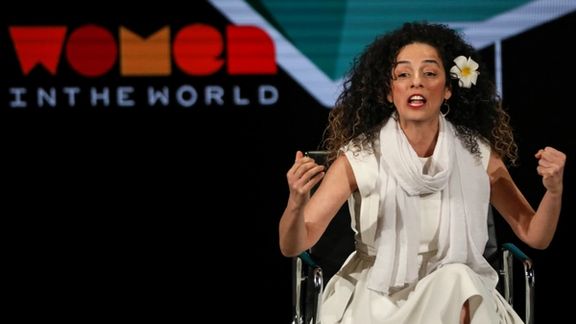
A US federal court has ruled that the Islamic Republic regime should pay over $3.3 million in damages to Iranian activist Masih Alinejad for detaining her brother.
The Iranian American journalist and women's rights campaigner released on twitter the court’s decision on Sunday. “In a major step, a US federal court has found the Islamic Republic of Iran guilty of wrongfully arresting my brother Alireza Alinejad and detaining him for two years to pressure me to stop my campaigns against compulsory hijab and gender apartheid.”
“The US District Judge G. Michael Harvey concluded Alireza was kept as a hostage for two years,” she added.
The judge awarded the plaintiff, Masih Alinejad, $1,662,500 in compensatory damages and $1,662,500 in punitive damages, after ruling in favor of her and against the defendant the Islamic Republic of Iran.
Alinejad sued the Iranian government, the Judiciary of Iran, and the Islamic Revolutionary Guard Corps (IRGC) as well as the Supreme Leader Ali Khamenei in 2019 for harassment against her and her family after the arrest of her brother.

She based her case on the Foreign Sovereign Immunities Act (FSIA), and Torture Victim Protection Act of 1991 (TVPA) for severe personal injuries and other irreparable harm suffered as a result of the regime’s “unlawful acts of terrorism, torture, hostage taking, and other torts against Alireza Alinejad-Ghomi (Plaintiff’s brother), and Ms. Zarrin Badpa, (Plaintiff’s mother).
“Alireza Alinejad-Ghomi was taken as a political hostage and continues to be tortured and imprisoned in order to discredit and intimidate Ms. Masih Alinejad and to pressure her to prevent her from speaking out against the Iranian regime,” read a part of the complaint submitted in December 2019.
Earlier in 2019, Alinejad announced that security forces had arrested her brother Alireza and were taking her family in Iran hostage to put pressure on her to cease her anti-regime activities. She also published a video clip in which her brother before his arrest said pressure on her parents had increased and they were being intimidated to condemn her and her activities on the state-run television (IRIB).
Alireza Alinejad was arrested in August 2019 and was later sentenced to eight years in prison. In 2020, his lawyer Saeid Dehghan, said Branch 36 of Tehran Province Appeals Court had confirmed an eight-year sentence for his client. Masih Alinejad announced the conditional release of his brother, writer and editor Alireza Alinejad, from Evin Prison in July 2021.
In her Sunday tweet, she urged all families, especially dual nationals held in detention, to file legal cases against the regime to prevent their loved ones from being used as bargaining chips.
She noted that this case was never about monetary compensation, but her “aim was to turn the spotlight fully on the crimes of the Islamic Republic.”
Many Iranians assuming that the court's judgement will be paid from Iran's frozen assets have raised questions about how fair it would be to pay money that belongs the Iranian nations to an individual or one family for their suffering. But the court's judgment does not specify that the money should come from any frozen assets.
Apparently, more court decisions are needed specifically to order the funds to be released from Iran's frozen assets that are mainly in Luxembourg. That would also require legal procedures in that country.
Other than that, there are no clear mechanisms to actually receive compensation from the Iranian government. It is obvious that it would deny any wrongdoing and condemn such rulings as an “interference in its internal affairs.”
Families of the victims of the 1983 Beirut barracks bombing, in which 307 people: 241 US and 58 French military personnel, six civilians, and two attackers also won court cases.
In their case filed against the Islamic Republic of Iran and the Ministry of Information and Security in 2001, the families of the 241 US peacekeepers sought a judgment that Iran was responsible for the attack and relief in the form of damages. In July 2012, federal Judge Royce Lamberth ordered Iran to pay hundreds of millions of dollars in damages and interest to the families. In April 2016, the US Supreme Court ruled that the regime’s blocked assets could be used, but there are no reports of families having received any money.
Masih Alinejad used the momentum and urged “Washington, and other governments, not to reward the Islamic Republic, which has no regards for human rights and is guilty of transnational repression,” also calling on American citizens to tell US elected officials not to engage with Islamic Republic.